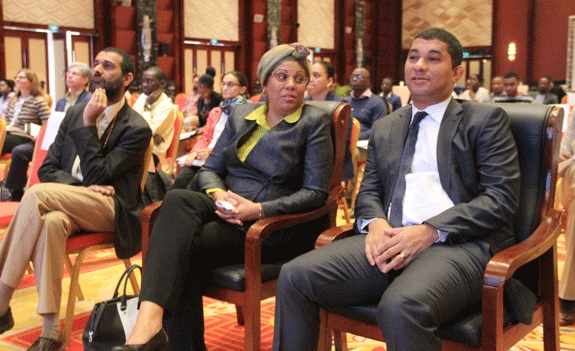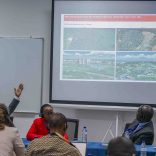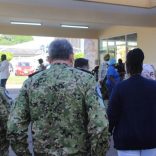WOAH donates 100,000 rabies vaccines to Mozambique
Ministers Abdula and Correia call for mitigating effects of climate change in Mozambique

Notícias / Minister of Health Hazira Abdula and Minster of Land, Environement ad Rural Development Celso Correia
Climate change is a reality in Mozambique, declared Health Minister Nazira Abdula in Maputo on Thursday, and the country’s geographical position makes it vulnerable to extreme climatic events.
Speaking at the opening of the First Public Debate on the Impact of Climate Change on Health, Abdula said “mitigating the negative impacts of climate change requires concerted efforts from various government sectors, our partners and society at large”.
The question of climate change, she added, will be the central theme of the 6th Annual Conference of the Observatory of Human Resources for Health, scheduled for November. Her ministry is working to set up an observation platform on climate, environment and health as part of the National Health Observatory, to support the sector in the generation and use of scientific evidence about climate change.
Abdula stressed that recent heat waves in various parts of Mozambique, the increased frequency and intensity of droughts and floods, the increase in the average temperature, and sea level rise “all have potentially devastating impacts on the health of Mozambicans”.
The country is still suffering from the 2015-2016 drought that had hit southern Mozambique and parts of the central provinces. The drought, she said, “not only limits the availability of water, but is seriously compromising several health indicators”.
The appearance of species of aedes mosquito in Mozambique and the recent occurrence of diseases that it spreads, such as dengue and chikungunya fevers, “represent new threats in our country, driven by climate change”, Abdula warned.
Abdula said the National Health Institute (INS) has signed a memorandum of understanding which the National Meteorology Institute in order to promote scientific and technical cooperation in the area of climate change.
“We think this is an opportune moment to make a joint reflection on strategies to mitigate the impact of climate change on health”, said the Minister. “With this debate, we want to collect ideas that will help our sector in its efforts to protect Mozambicans from the ills resulting from climate change”.
The Minister of Land, Environment and Rural Development, Celso Correia, pledged that his ministry will continue to work closely with the health authorities and other government bodies involved in mitigating the impacts of climate change.
He recognised that, in addition to environmental damage, climate change can have a wide range of impacts on human health, ranging from the emergence of chronic illnesses to increased malnutrition.
“Health is one of the sectors most vulnerable and sensitive to the worsening climate”, Correia said. Close cooperation between the two ministries was required to ensure the resilience of the health sector.
Key environmental actions to protect the health of Mozambicans, he added, included eliminating places where mosquitoes can breed, disposing of garbage correctly, planting trees to combat deforestation, and generally providing a healthier environment.
Correia warned that there is no “Planet B”, which humanity can move to when it wrecks this planet. Human life will depend on how Planet Earth is treated in the here and now, he said.












Leave a Reply
Be the First to Comment!
You must be logged in to post a comment.
You must be logged in to post a comment.